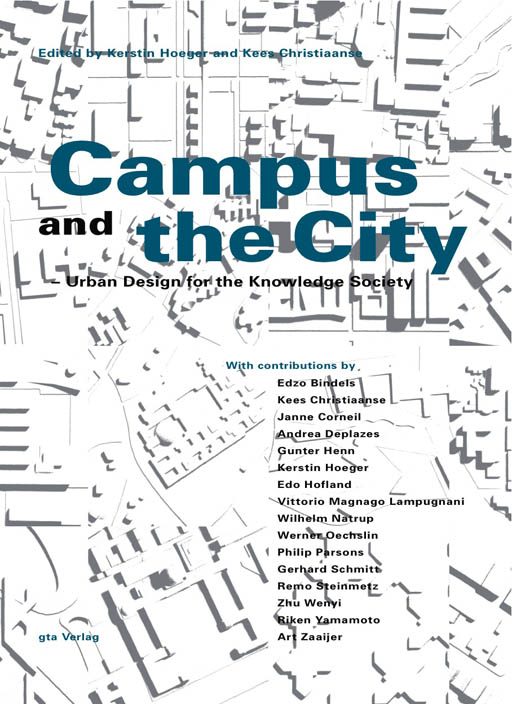ETH Zürich – Institut für Städtebau
HIL H44.1 – Stefano-Franscini-Platz 5 – 8093 Zürich
Kontakt
research project 2006-2009
International Research on University and Corporate Developments
“Campus Design” is an international research project initiated and conducted by Kerstin Hoeger and Kees Christiaanse from the Chair of Architecture and Urban Design at ETH Zurich. It offers a platform on which architects and planners can exchange critical and visionary perspectives on academic and corporate campus developments with representatives from the academic, political, economic and social sectors. In the long run, “Campus Design” seeks to form a consortium with universities, institutions and companies that are interested and want to exchange their experience and knowledge on the subject.
Campus design will become a major issue in the future, and ETH wants to contribute its ideas and experience about education, society, culture, and environment in the physical planning and design of campuses. The goal is to create effective long-term strategies that are supported by science, business and society. The focus of the research is campus design in both the public and private realm, from the conversion and revitalization of mono-functional university centres to the creation of new campuses which seek to form lively and sustainable urban districts. The latest tendencies of campus design will be analyzed through a series of international examples.
The analysis, consulting and development of this contemporary urban design phenomenon is centred on current and future projects for scientific and corporate campuses. The many “Greenfield” campuses built in the 1960’s and 70’s, such as ETH Hoenggerberg, now find themselves outdated due to functional, technical and economical reasons and in dire need of restructuring. It is a challenge which concerns university campuses in Europe and the rest of the world alike. In addition, many new university districts are being established, especially in emerging Asian countries.
At the same time, corporations are increasingly seeking urban design strategies that will encourage innovation and synergy within their centres or clusters, and look to the academic campus as a model for development. The campus typology is more and more adopted by the private commercial sector as a means to foster inventive and creative potential, such as with the Novartis Campus in Basel. Meanwhile in the academic realm, the validity of traditional campus models is being questioned. Often isolated geographically, the introverted campus is now perceived as elitist. This ‘ivory tower’ typology lacks the architectural qualities necessary to re-integrate these institutions into the urban public realm.
What kind of spatial organisation promotes internal knowledge transfer and social interaction while simultaneously integrating with surrounding urban environments? What sort of urban strategies are needed to create sustainable centres of knowledge and learning that are flexible enough to respond to the fast changing demands of industry and society? These are but a few of the questions we hope to address in the Campus Design research project.

This website has been archived and is no longer maintained.